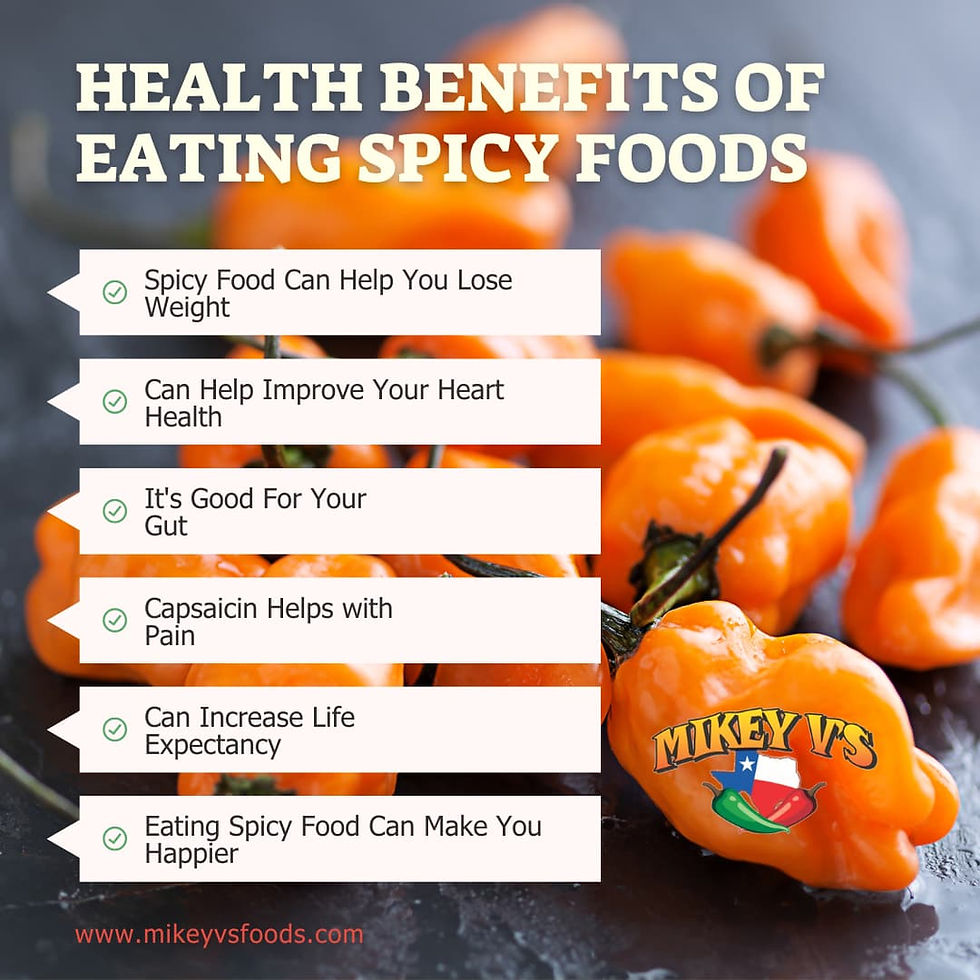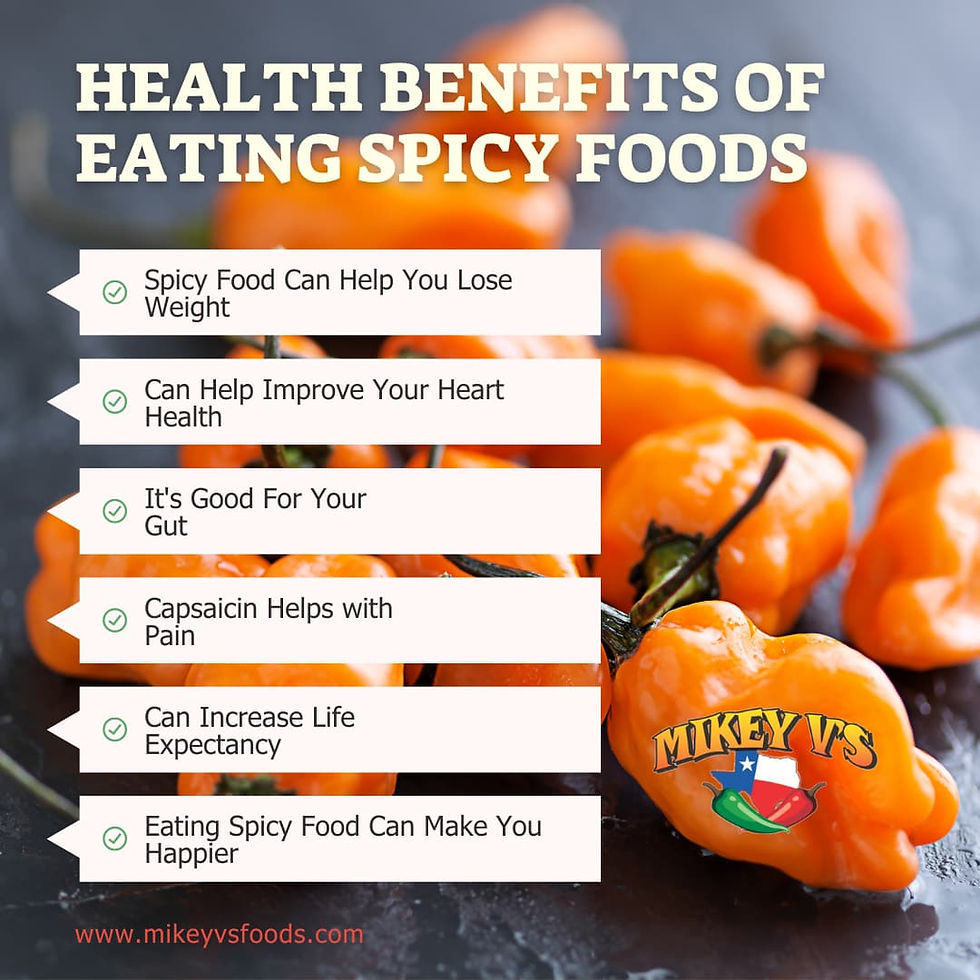Can We Eat Spicy Food During Weight Loss?
Spicy food enthusiasts will be pleased to know that enjoying your favorite dishes might not hinder weight loss efforts. Various studies suggest that capsaicin, the compound responsible for the heat in chili peppers, can boost metabolism and increase fat burning. Surprisingly, it might even help curb appetite, making it a fascinating element to consider for those aiming to shed pounds.
Historically, cultures across the globe have incorporated spices into their cuisines, often associated with medicinal benefits. Modern research backs this tradition, showing that consuming spicy foods regularly can elevate thermogenesis, the process through which the body burns calories. According to some studies, this metabolic boost can amount to burning up to 50 extra calories a day, a small but potentially impactful factor in long-term weight management.

Overview of Spices
Throughout history, spices have held a special place in various cultures. They were often considered valuable and even used as currency. Spices not only added flavor to food but also provided medicinal benefits.
As global trade routes expanded, the demand for spices grew significantly. This led to the development of major trading cities around the world. The spice trade influenced many aspects of history, including exploration and colonization.
Common spices like cinnamon, ginger, and turmeric each have unique flavors. They are used in different ways across various cuisines. For example, cinnamon is sweet, while ginger adds a spicy kick.
Including spices in your diet can offer many health benefits. Certain spices have anti-inflammatory and antioxidant properties. They can enhance the taste of healthy meals, making it easier to stick to a balanced diet.
Capsaicin and Metabolism
Capsaicin is the compound that makes chili peppers spicy. It can also speed up your metabolism. This boost in metabolism helps your body burn more calories.
How Capsaicin Increases Metabolism
Capsaicin works by increasing thermogenesis. This is the process where your body generates heat. When your body heats up, it burns more calories.
Studies have shown that consuming capsaicin can lead to a slight increase in metabolism. Although this increase is small, it can add up over time. This makes capsaicin a useful tool for weight management.
Capsaicin can also help you feel fuller. This can lead to eating less overall. Combined with a higher metabolism, it supports weight loss efforts.
Scientific Evidence Supporting Capsaicin's Benefits
Several studies back the metabolism-boosting effects of capsaicin. One study found that people who ate a spicy meal burned more calories afterward. These findings suggest that capsaicin can aid in weight loss.
Another study indicated that regular capsaicin consumption can increase metabolic rate by about 8%. This translates to burning an extra 50 calories a day. Over time, this can contribute to significant weight loss.
Capsaicin has also been shown to reduce appetite. Participants in various studies reported feeling less hungry after consuming capsaicin-rich foods. This can help in eating fewer calories and sticking to a diet plan.
Practical Ways to Include Capsaicin in Your Diet
Adding capsaicin to your diet can be simple and delicious. You can start by incorporating more spicy foods into your meals. For example, add chili flakes to your pasta or sprinkle hot sauce on your eggs.
- Add diced chili peppers to salads and soups.
- Use cayenne pepper in marinades and rubs for meats.
- Spice up your smoothies with a pinch of cayenne.
If you prefer less heat, start with milder peppers like jalapeños and gradually move to hotter varieties like habaneros. The key is to enjoy the process and find the right level of spice for your palate. This way, you can reap the benefits of capsaicin while savoring your meals.
Spicy Foods and Appetite Reduction
Eating spicy foods can help reduce your appetite. This happens because spices like chili peppers contain capsaicin. Capsaicin triggers feelings of fullness, making you eat less.
When you feel full faster, you’re likely to consume fewer calories. This can be especially useful for those trying to lose weight. It helps to control food intake without feeling deprived.
| Spicy Food | Capsaicin Concentration | Appetite Reduction Effect |
|---|---|---|
| Chili Peppers | High | Strong |
| Jalapeños | Moderate | Medium |
| Habaneros | Very High | Very Strong |
Several studies have confirmed that spicy foods can cut down on hunger. Participants in these studies reported feeling less hungry after eating meals with capsaicin. This shows the potential for spicy foods in weight management.
Balancing Spicy Intake
When incorporating spicy foods into your diet, balance is key. Eating too much spicy food can lead to stomach issues. Moderation ensures that you enjoy the benefits without discomfort.
Start by adding small amounts of spice to your meals. Gradually increase the level as your tolerance builds. This approach helps you adjust without overwhelming your system.
Pair spicy foods with cooling elements to reduce heat intensity. Foods like yogurt, cucumber, and coconut can help. These additions make it easier to handle spiciness.
It's important to listen to your body. If you experience any adverse reactions, such as heartburn, cut back on the spice. Balancing spicy intake keeps your digestive system happy.
- Include a variety of spices in your diet for diverse flavors.
- Avoid adding too much spice all at once; slowly build tolerance.
- Combine with cooling foods to balance the heat.
A balanced approach to spicy foods allows you to enjoy their benefits. It helps control appetite and may boost metabolism. By keeping it moderate, you can reap these rewards comfortably.
Health Issues Related to Excessive Spicy Food
Eating too much spicy food can lead to various health problems. Digestive issues like heartburn and acid reflux are common complaints. These symptoms occur when spicy food irritates the stomach lining.
Some individuals may experience diarrhea after consuming high amounts of spicy food. This happens because the digestive system tries to expel the irritants quickly. Reducing spice levels can help alleviate this problem.
- Heartburn and acid reflux
- Diarrhea
- Skin irritation
Excessive spicy intake can also cause skin irritation. When your body sweats, capsaicin can contact the skin, causing a burning sensation. Washing thoroughly after eating spicy foods can prevent this issue.
For individuals with conditions like gastritis or irritable bowel syndrome (IBS), spicy foods can aggravate symptoms. It's crucial to monitor your body's reactions. Consult a healthcare provider if you experience severe discomfort.
Balancing your diet with milder foods can minimize the risk of health issues. Enjoy spicy foods in moderation to benefit from their flavor and health effects without experiencing adverse side effects.
Recipes Incorporating Spice for Weight Loss
Adding spice to your meals can make healthy eating more enjoyable. It can also help boost metabolism and reduce appetite. Here are some tasty recipes to try.
For a spicy twist on breakfast, consider a spicy avocado toast. Mash an avocado and mix in a dash of chili flakes and lime juice. Spread it on whole-grain toast for a flavorful start to your day.
- Spicy avocado toast
- Chili lime chicken
- Cayenne pepper smoothie
Chili lime chicken is perfect for a high-protein lunch. Marinate chicken breasts in lime juice, chili powder, and olive oil. Grill or bake for a tasty, low-calorie meal.
For those who love smoothies, a cayenne pepper smoothie packs a punch. Blend fruits like pineapple and mango with yogurt and a pinch of cayenne pepper. This blend combines sweetness with a spicy kick, making it a refreshing and fat-burning drink.
Experimenting with spicy recipes can make weight loss more exciting. These meals not only taste great but also support your health goals. Enjoy your journey to a spicier, healthier lifestyle!
Frequently Asked Questions
Spicy foods are more than just a culinary delight; they offer various health benefits, including aiding in weight loss. Below are some common questions about incorporating spicy food into your diet for weight loss.
1. How does capsaicin boost metabolism?
Capsaicin works by increasing thermogenesis, the process where the body generates heat. This results in more calories burned, even when at rest. Additionally, capsaicin activates certain receptors in the body that help break down fat.
Research shows that consuming capsaicin can elevate the metabolic rate by around 8%. Over time, this increase can contribute to significant calorie burning and assist with weight management goals.
2. Can spicy foods reduce appetite?
Yes, spicy foods can help reduce appetite by making you feel fuller quicker. Capsaicin affects appetite-control hormones, promoting a feeling of satiety after meals, which leads to eating fewer calories overall.
This property is particularly beneficial for those trying to control portion sizes and avoid overeating. By curbing hunger pangs, spicy foods can make it easier to stick to a balanced diet plan.
3. Are there any risks associated with eating too much spicy food?
While moderate consumption of spicy food has health benefits, excessive intake can cause digestive issues like heartburn and acid reflux. It may irritate the stomach lining and worsen conditions like gastritis or irritable bowel syndrome (IBS).
If you experience discomfort after eating spicy foods, consider reducing your intake or pairing it with cooling foods like yogurt or cucumber. It's essential to listen to your body's signals to avoid potential health problems.
4. What are some easy ways to add spice to my diet?
You can easily incorporate spice into your meals by adding chili flakes or hot sauce to dishes like eggs, pasta, and soups. For a more substantial flavor profile, try marinating meats with spices such as cayenne pepper or chili powder before grilling or baking them.
An easy way to start is by experimenting with different levels of spiciness until you find what suits your taste buds best. Remember that combining spices in your recipes not only enhances flavor but also offers numerous health benefits.
5. Can children eat spicy food safely for its health benefits?
Sensitive palates might not tolerate high levels of spice well; it's crucial to introduce spices gradually if considering them for children’s diets. Start with milder spices like paprika and gradually work up to hotter ones. For children specifically targeting health benefits from spices’ active compounds such as capsaicin ensure consultation first an expert e.g., pediatrician & always watch children's reactions closely while introducing novelty new flavors/ingredients! Their nutritional needs differ accordingly
"Conclusion
Incorporating spicy foods into your diet can be a strategic move for weight loss. Capsaicin boosts metabolism and helps reduce appetite, making it easier to maintain a calorie deficit. However, it's essential to balance spice intake to avoid potential digestive issues.
By understanding how to integrate spicy foods properly, you can enjoy their health benefits. Remember, moderation is key. Consistently listening to your body and making adjustments will help you achieve your weight loss goals effectively and safely.
